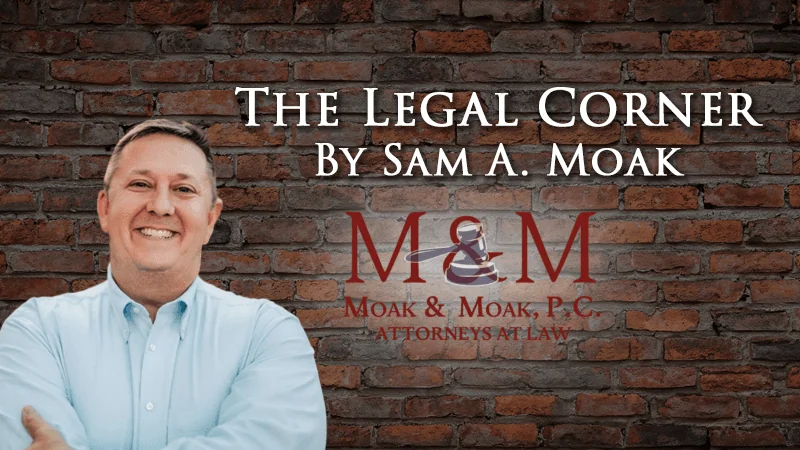The information in this column is not intended as legal advice but to provide a general understanding of the law. Any readers with a legal problem, including those whose questions are addressed here, should consult an attorney for advice on their particular circumstances.
Are you involved with a civil organization? Does your organization award scholarships to graduating seniors at a local high school? Through a charitable gift, you can create an individual endowed fund to benefit most universities. The process can be easy and customizable allowing you to specify your fund’s name and whether you’d like your gift to support scholarships, advance faculty endeavors, enhance student programs, or fund new facilities at the university.
The Walker County A&M Club recently entered an agreement with the Texas A&M Foundation to create an endowed scholarship in the Club’s name. The Texas A&M Foundation agrees to maintain the endowed funds in perpetuity. This is a partnership with the Foundation with the goal being to preserve the principal of our gift while providing annual distributions to provide an annual scholarship to a local graduating senior attending Texas A&M University.
There are four significant advantages to creating an endowment and investing at the Texas A&M Foundation:
1. Maximum Risk Efficiency: Any investment requires some risk, but with an endowment, stability is the highest priority. The Foundation investment team maximizes returns for the amount of risk assumed.
2. Unparalleled Access: Most individual investors are limited to public markets. The Foundation’s investment team has institutional access to private markets—as well as better fee arrangements and relationships with sophisticated investors—to ensure greater long-term returns.
3. Dependable Dividends: While markets exist in a state of constant flux with periods of great volatility, The Foundation endowment is built to deliver consistent impactful distributions to the university year after year, regardless of short-term conditions.
4. Enduring Strength: The Foundation's endowment’s perpetual time horizon is its greatest advantage. By focusing on long-term success instead of short-term gains, the Foundation’s team can make composed decisions that fortify Texas A&M and its academic mission for generations.
The annual payout of 4% of the average unit value, calculated based on a five-year (20 quarter) moving average, is made available to the university every month to support each donor’s intent. An additional 1.25% per year of the same unit value average is paid out to support the Foundation’s operating budget. A disciplined payout policy allows us to balance the competing objectives of supporting today’s students while also preserving capital in the LTIP to positively impact future generations.
Our goal as the Walker County A&M Club is to fund our initial endowment at $25,000.00. Then if we choose to add to that amount or change the parameters of the scholarships awarded, the Foundation allows us to do so. As an example of the endowment’s potential, a $25,000.00 endowed scholarship set up in 1993 and invested in the Foundation’s LTIP, would have a market value of over $52,000.00 today. Additionally, it would have distributed $47,000.00 in scholarships over that same 30-year period.
Texas A&M University tracks individual giving and if you are so inclined to contribute to our Walker County A&M Club endowment, you would receive recognition AND it is a 501(c)(3) nonprofit organization, so you could receive a tax credit. You can make an individual contribution to the endowment or if you are required to take an annual disbursement from your IRA, this can be directed to the endowment.
While I am proud of my local A&M Club and Texas A&M University, anyone can do this. Sam Houston State University has this same opportunity as almost any school. Even that little ol college in Austin.
Sam A. Moak is an attorney with the Huntsville law firm of Moak & Moak, P.C. He is licensed to practice in all fields of law by the Supreme Court of Texas, is a Member of the State Bar College and is a member of the Real Estate, Probate and Trust Law Section of the State Bar of Texas.


